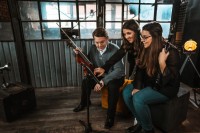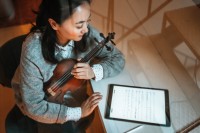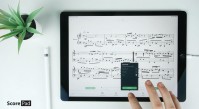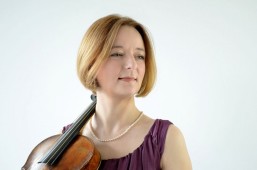
The Music World in the Digital Age |
The new music app ScorePad is based on the open source MusicXML format, a filetype for sharing sheet music. The app will be launched first in German speaking countries in June.
Niklaus Rüegg – ScorePad is the brainchild of the Swiss company with same name, ScorePad AG, located in Erlenbach, Switzerland. According to marketing manager Maike Nagel, ScorePad «will close the gap between a PDF reader and a notation system». ScorePad is not a notation software, but a practically oriented music app, intended for ambitioned and professional musicians who play in ensembles or orchestras. The first launch will only be for the iPad, for iOS is the most stable operating system, says Maike Nagel. iPhone and OSX versions are in the makes. A version for Android is planned as well. ScorePad’s purpose is to facilitate digitalization in the world of music. The complete switch from paper to digital is not a thing though. The developer’s objective is to create a smooth experience for musicians, reducing distractions from turning pages, looking for pencils, erasing, or less than ideal lighting conditions. Printed scores will, of course, continue to exist. The phenomenon is similar to e-books and printed books. Both have their place and will continue to exist.
Innovation with Impact
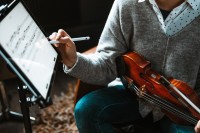 ScorePad’s strength lies in its holistic approach. The use of the open source filetype musicXML instead of PDF is central to the app. MusicXML facilitates the exchange of sheet music and enables various collaborative, dynamic functions, which PDF could only provide on a modest scale. A noteworthy feature are the dynamic text notes. Individual voices may be targeted for zooming in and out, without inserted text notes distorting or obstructing the sheet music.
ScorePad’s strength lies in its holistic approach. The use of the open source filetype musicXML instead of PDF is central to the app. MusicXML facilitates the exchange of sheet music and enables various collaborative, dynamic functions, which PDF could only provide on a modest scale. A noteworthy feature are the dynamic text notes. Individual voices may be targeted for zooming in and out, without inserted text notes distorting or obstructing the sheet music.
Music collectives such as ensembles, bands or orchestras are able to quickly share text notes with all participating musicians, or just with certain voices. Personal notes may be inserted as well, which won’t be shared with others. An example: The conductor oversees the entire score on his tablet and may give written notes for the entire orchestra, or for individual parts. This ensures that instrument families only receive text notes relevant to them. Everything is based on touch screens. Pre-defined symbols can be inserted through apple pencil, or with just your fingers. The conductor may jump to a certain measure, for example. The musicians will receive a message saying «attention, conductor is jumping to measure 23». Another innovation is the automatic, individually or collectively programmable page change feature, which renders annoying page turns redundant. The hands may be exclusively used to play the instrument.
Access and Digitalisation
A trailblazing venture, ScorePad has created a digital sheet music library, much like its role models Spotify and Netflix. The monthly subscription fee includes access to this sheet music library. Thanks to contractual agreements with publishers, there are no authorship issues either. The user may download any musical works from the existing library, transpose them with few click, even import his/her own XML files, or let ScorePad digitalize PDFs – at a never seen before, high resolution.
With the digitalization of the sheet music – which has always been a pain with notation software – ScorePad is a crucial step ahead, thanks to its developers: The digitalization (PDF to musicXML) of scores with ScorePad is now reliable, and possible at a negligibly small error rate. Newly scanned notes don’t need to be engraved anymore, as this new process turns out much faster than to correct mistakes from scans. The process looks as follows:
Scanned sheet music is sent to ScorePad, comes back in digital form, and may then be used as such.
Behind this innovative technology is a collaborative research project with the Zurich University for Applied Sciences (ZHAW). Together with the ZHAW, the system OMR (Optical Music Recognition) has been significantly developed and combined with «Deep Learning», an artificial intelligence based system. The system learns and improves with every input it receives. “The OMR is coming”, says CTO Florian Seibold, «close to perfection. The logical verification of the algorithm’s output may still be improved on, however, that is purely a coding effort.»
The current research phase explores the possibility to take pictures of sheet music and convert it into XML immediately.
Long Wishlist
ScorePad is indefinitely expandable and updateable, but not everything that is possible, will be integrated from the beginning. The question of resources plays an important role here. There's an internal list of priorities for continuous development. Editing functions may be implemented, for example, so that note corrections don’t require opening actual notation software. The integration of playback functions – very popular as learn files or playalongs – is not technically a problem with musicXML, states Maike Nagel, however it does cost time and money. Even a tempo change function would be imaginable. The accompanying instrument could easily adapt to the melody instrument, in terms of speed and dynamics.
What does ScorePad cost? The basic version for ambitioned musicians is available for CHF 10 per month, with access to the library, all functions, creating and sharing dynamic text notes, transposing, selecting instruments/parts. Digitalisation and collaborative functions are part of the Pro version, for CHF 50 per month, which can be cancelled any month. Costly? Naike Nagel: «The money saved from buying and digitalizing sheet music, makes ScorePad a more affordable solution».
The following editions of Music4Viola are already available on ScorePad:

This blog article is written by Niklaus Rüegg, graduate of the Zurich International Opera Studio, graduate of the Basel Opera Academy, twice winner of the Migros Gifted Scholarship, numerous engagements in opera, operetta, musicals and concerts in Switzerland and abroad.
Rüegg has also been working as a music journalist for ten years and is responsible for the association pages of the VMS (Verband Musikschulen Schweiz) in the Schweizer Musikzeitung. As a young man, Niklaus Rüegg had played the violin and viola.
Photos: Scorepad
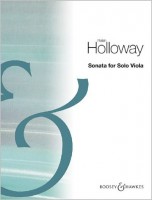
(1943)
Sonata, op. 87, for Viola solo
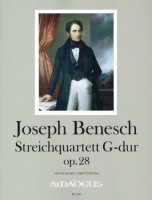
(1795-1873)
Quartet in G major, op. 28 for 2 Violins, Viola and Violoncello
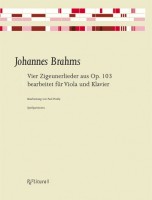
(1833-1897)
4 Zigeunerlieder, from op. 103 for Viola and Piano
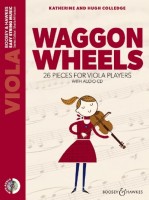
26 pieces for viola players
The challenge with shoulder rest and chinrest
As a viola teacher, I have been focusing for 20 years on the possibility to play viola while considering physiology. Through my experience with Alexander Technique and Yoga, I developed my perception on all angles and levers, which truly «make» the music.
» to the blog
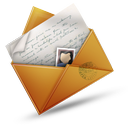 Do you don't want to miss any news regarding viola anymore? Our monthly viola news letter will keep you informed.
Do you don't want to miss any news regarding viola anymore? Our monthly viola news letter will keep you informed.» Subscribe to our viola letter for free
 Visit and like us on Facebook.
Visit and like us on Facebook.» Music4Viola on Facebook
